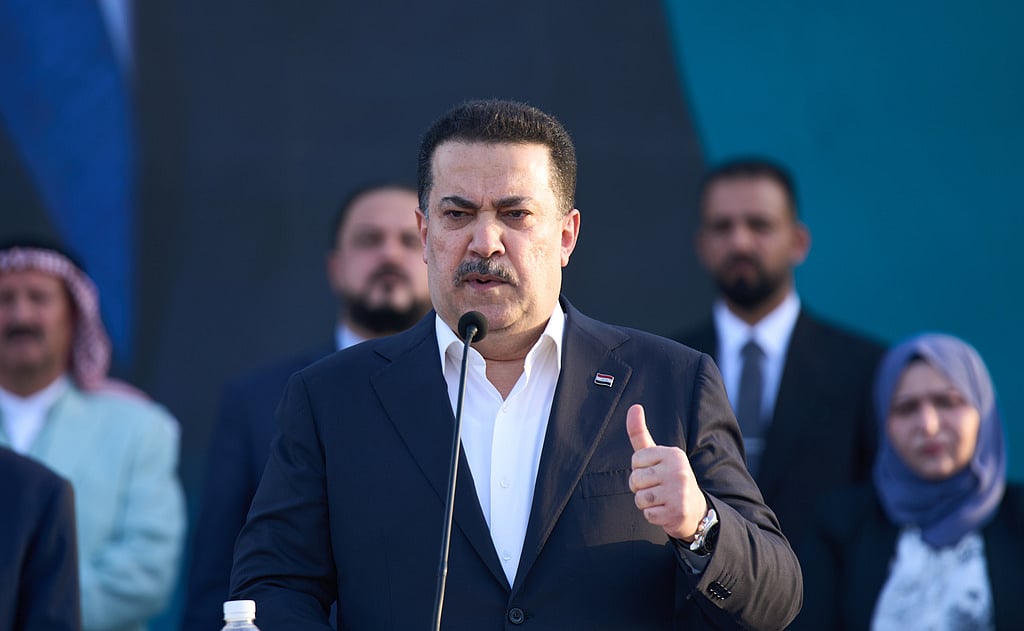Iraq says some US military advisers will stay due to Daesh threat in Syria
US military advisers and support personnel stationed at Ain Al Asad air base in Iraq

Baghdad: Iraq’s prime minister said Monday that a small contingent of US military advisers will remain in the country for now to coordinate with US forces in neighbouring Syria combating the Daesh (Islamic State) group.
Washington and Baghdad agreed last year to wind down a US-led coalition fighting Daesh in Iraq by this September, with US forces departing some bases where they have been stationed.
Iraqi Prime Minister Mohammed Shia Al Sudani told journalists in Baghdad that US military advisers and support personnel are now stationed at the Ain Al Asad air base in western Iraq, a base adjacent to the Baghdad airport, and the Al Harir air base in northern Iraq.
Al Sudani noted that the agreement originally stipulated a full pullout of US forces from Ain Al Asad by September, but that “developments in Syria” since then required maintaining a “small unit” of between 250 and 350 advisers and security personnel at the base.
He said they would work to support counter-Daesh surveillance and coordination with the Al-Tanf base in Syria. He added that other US sites are witnessing “gradual reductions” in personnel and operations.
After the fall of former Syrian President Bashar Assad in a rebel offensive in December, fears arose in Iraq of Daesh resurgence taking advantage of the ensuing security vacuum and weapons abandoned by the former Syrian army.
Al Sudani maintained that the extremist group, which seized wide swathes of territory in Iraq and Syria a decade ago, “no longer poses a significant threat inside Iraq.”
Iraq has sought to balance its relations with the United States and neighbouring Iran and to avoid being pulled into regional conflicts, a policy that the prime minister said he will continue.
“We put Iraq first, and we do not wish to act as a proxy for anyone,” he said. “Iraq will not be a battlefield for conflicts.”
At the same time, Al Sudani urged the US to return to negotiations with Iran, describing the Trump administration’s “maximum pressure” approach to curtail Iranian influence as “counterproductive.”
“Iran is an important and influential country that must be treated with respect and through direct dialogue,” he said.
There have been tensions between Baghdad and Washington over the presence of Iran-backed militias in Iraq. The Popular Mobilisation Forces, a coalition of militias that formed to fight Daesh, was formally placed under the control of the Iraqi military in 2016 but in practice still operates with significant autonomy.
The Iraqi parliament has been considering legislation that would solidify the relationship between the military and the PMF, drawing objections from Washington.
Al Sudani did not directly address the proposed legislation but said his government’s programme “includes disarmament and national dialogue to remove any justification for carrying weapons.”
“We encourage all factions to either integrate into state institutions or engage in political life,” which could include becoming political parties and running for election, he said.
Iraq is preparing for parliamentary elections next month that will determine where Al Sudani serves a second term.
“Armed factions that have transformed into political entities have the constitutional right to participate” in those elections, the prime minister said.
Sign up for the Daily Briefing
Get the latest news and updates straight to your inbox
Network Links
GN StoreDownload our app
© Al Nisr Publishing LLC 2026. All rights reserved.